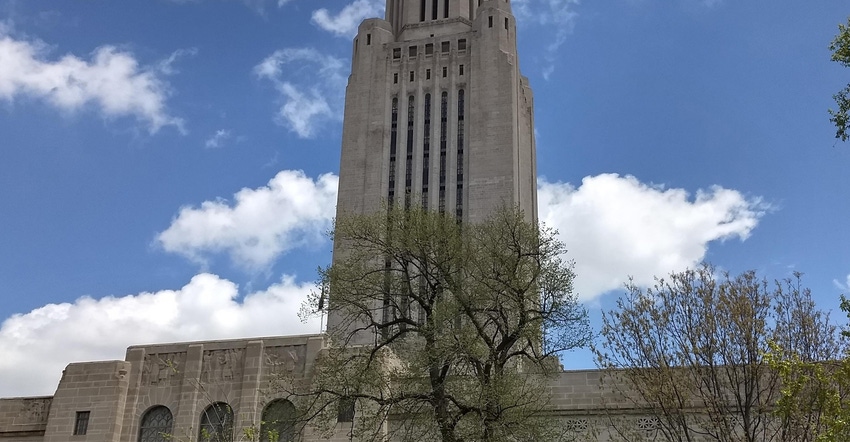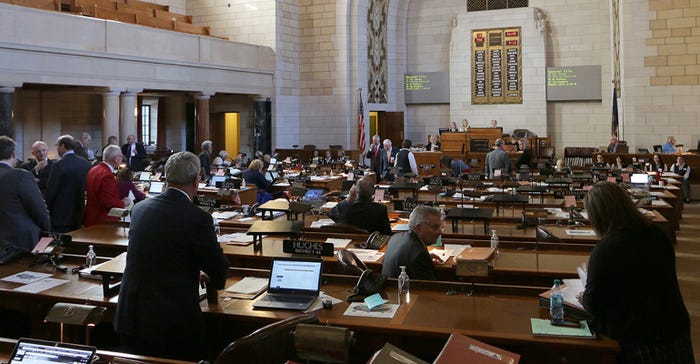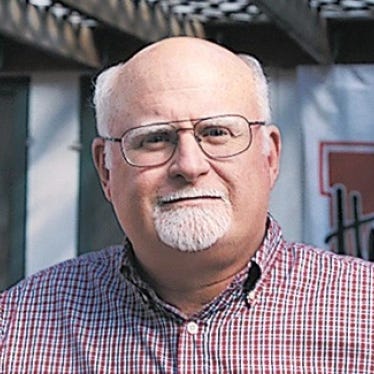
The one-house Nebraska Legislature that convened in 1937 was considered by some to be an experiment — one that wouldn’t last. But last it did, revolutionizing Nebraska governance in the process. Almost 85 years later, Nebraska remains unique among the states because of its unicameral system.
Its immediate effect back then, says Patrick O’Donnell, clerk of the Nebraska Legislature, was a drastic downsizing — from 133 legislators in the 1935 session to 43 in 1937, and from 61 committees in the two-house Legislature to 18 in 1937.
Norris was the key
O’Donnell — the longest-serving state legislative clerk in the country — along with many historians, credits U.S. Sen. George Norris, a native of McCook, Neb., with bringing about the Unicameral.
“Norris’ experience in Washington formulated his ideas about a two-house legislative body,” O’Donnell says. “He didn’t like the system of backroom dealing by conference committees, even corruption that he saw. He didn’t like partisan politics.”
Norris desired for Nebraska what he considered a more open legislative body that more directly served the people and was more efficient in developing and debating bills.

IN SESSION: The George W. Norris Legislative Chamber in the Nebraska State Capitol is home to the nation’s only Unicameral, or “one-house” state legislative body.
Nebraska voters passed a constitutional amendment in 1934 by vote of 286,086 to 193,152 to create the Unicameral, according to information on the Nebraska Unicameral website. The amendment directed the 1935 Legislature to divide the state into at least 30 but no more than 50 legislative districts. The number first settled on was 43. It increased to 49 districts when voters approved an amendment in 1962.
“Norris spent a lot of his own money to promote the Unicameral in the state, and it was said he wore out two sets of tires that year traveling the state urging passage of the amendment,” O’Donnell says. “He even addressed the first session of the Unicameral in 1937.”
Frugal state
Other forces were at work in enabling passage of the constitutional amendment. Nebraska’s frugality during the Great Depression was a big factor since a one-house legislature drastically reduced administrative costs with fewer senators and committees. Efficiency and openness to the people also were a factor.
A Norris quote at the time clearly expressed his common-sense views and desire for more government efficiency: “The constitutions of our various states are built upon the idea that there is but one class,” he said. “If this be true, there is no sense in having the same thing done twice, especially if it is to be done by two bodies of men elected in the same way and the same jurisdiction.”
The amendment also called for a nonpartisan legislative body where “there is no indication of a candidate’s political party on the ballot.” Nonpartisanship has worked for the most part through the years, but it’s inevitable that party politics plays some role, especially in getting candidates to run for district seats. O’Donnell believes that rural-vs.-urban issues are more prevalent in the Unicameral than party politics.
However, term limits could be altering that scenario, he adds. “People ran for office because they wanted to. Now because of term limits, more candidates are asked by the political parties to run for office,” he says. “That may be creating a different mindset.”
O’Donnell believes urban-vs.-rural issues generally have been resolved due, in part, to “good and influential rural senators” in the Unicameral. But that too could change as the number of rural senators continues to decline because of population trends.
Norris has been referred to by historians as a progressive Republican or New Deal Republican. He was respected nationally as a U.S. senator for his achievements, particularly promotion of rural electrification and the Tennessee Valley Authority.
Learn more about the Unicameral online at nebraskalegislature.gov.
McCabe is the former editor of Nebraska Farmer. He writes from Lincoln, Neb.
About the Author(s)
You May Also Like






